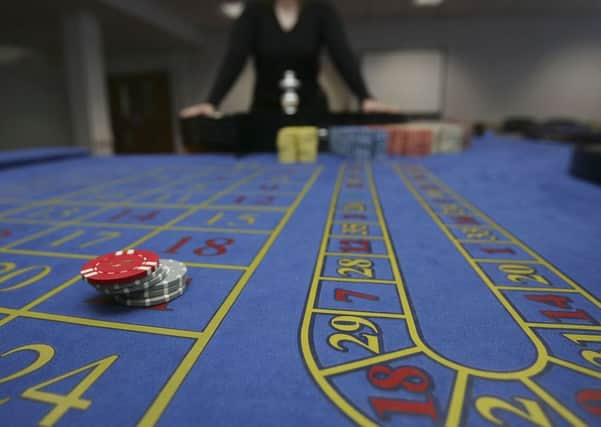Leaders: Street corner casions | Speak français


But when the occasional punt turns into a habit, it can become extremely damaging to the gambler and their families.
That is why gambling venues – bookmaking shops, casinos and even bingo halls – are all highly regulated. But the proliferation of fixed odds betting machines inside bookmakers’ shops suggests the gambling trade has found a way to encourage gamblers to part with more of their money.
Advertisement
Hide AdAdvertisement
Hide AdThese terminals are more than just slightly sophisticated fruit machines. Operating at high speed, they are designed to make the user have lots of goes in quick succession. They take quite high stakes too – typically £12 per spin, according to a study done for Glasgow City Council.
This study found that more than £500,000 a day is being emptied into about 800 machines in some 200 bookies. Since most of these machines offer virtual forms of gaming such as roulette, normally found only in casinos, Councillor Paul Rooney, chairman of a cross-party group looking at the issue, has called shops which have them “street-corner casinos”.
A vast amount of money is being spent in such places – in Glasgow alone, it is estimated to be £200 million a year. And presumably, part of the point of these machines is to lure gamblers in so they will also bet on football matches, horse races and whatever else the bookie is offering odds on.
So the sum being lost in the machines, estimated to be about £30m a year, may just be the icing on a very lucrative bookmaking business cake.
This may explain why the number of these shops is growing faster than might be expected if they were purely reliant on racing and sporting bets.
Of course, the bookmakers have found their business under pressure from online betting, which has now spread from the computer terminal to the mobile phone. Online betting is also a competitive and a highly profitable business – count the adverts during any World Cup football match on the commercial TV channels.
Local authorities can do nothing about online betting, but if they feel a problem is arising with gambling in premises within their area, they ought to be able to take action.
According to Mr Rooney, that isn’t the case. Regulation, he says, has not caught up with the technological revolution in gambling. And if that is creating a new and more widespread generation of addicted gamblers, that is clearly a problem.
Advertisement
Hide AdAdvertisement
Hide AdThe Scottish Government is right to look at this new evidence from Glasgow and to consider new powers being given to councils to keep a check on these mini-casinos.
Parisians in for a rude awakening
Anyone who has been to Paris and is unfortunate enough not to speak any French will have restaurant tales to tell. Parlez-vous Anglais? one asks, and the waiter grunts a non, shakes his stony-faced head and then waits imperiously for the next move. Ask for a bière, and he will ransack the cellar for the most expensive bottle possible rather than bring the much cheaper draught beer, which, of course, is not a bière at all but, as you eventually learn from your guidebook, a pression.
But now, all this must stop. Complaints about unhelpful waiters and disdainful taxi drivers have now reached the highest ears. The French government is appalled by various surveys which have labelled Paris, and by implication France, as the rudest place to tourists in Europe.
Ministers have issued instructions: put away the surliness and get out the smiles, try to say oui a lot more than non, and, if expecting to get paid for a service, try to provide it.
There is economic reason behind this drive for niceness. France, with its vast cultural heritage, reputation for good food and wine, and lots of sunshine has never had to bother too much about attracting visitors. If one gets upset, there have always been plenty more queuing to come. But now there are other destinations to choose from.
To be fair, the rest of France outside Paris learned how to say bonjour et bienvenue a long time ago. Even the provincial French think Parisians haughty and disdainful. Is there a risk here? Might smiling waiters helpfully explaining the menu bringing le steak actually medium-done and not bloodily dripping destroy what has been part of the essential Paris visitor experience?